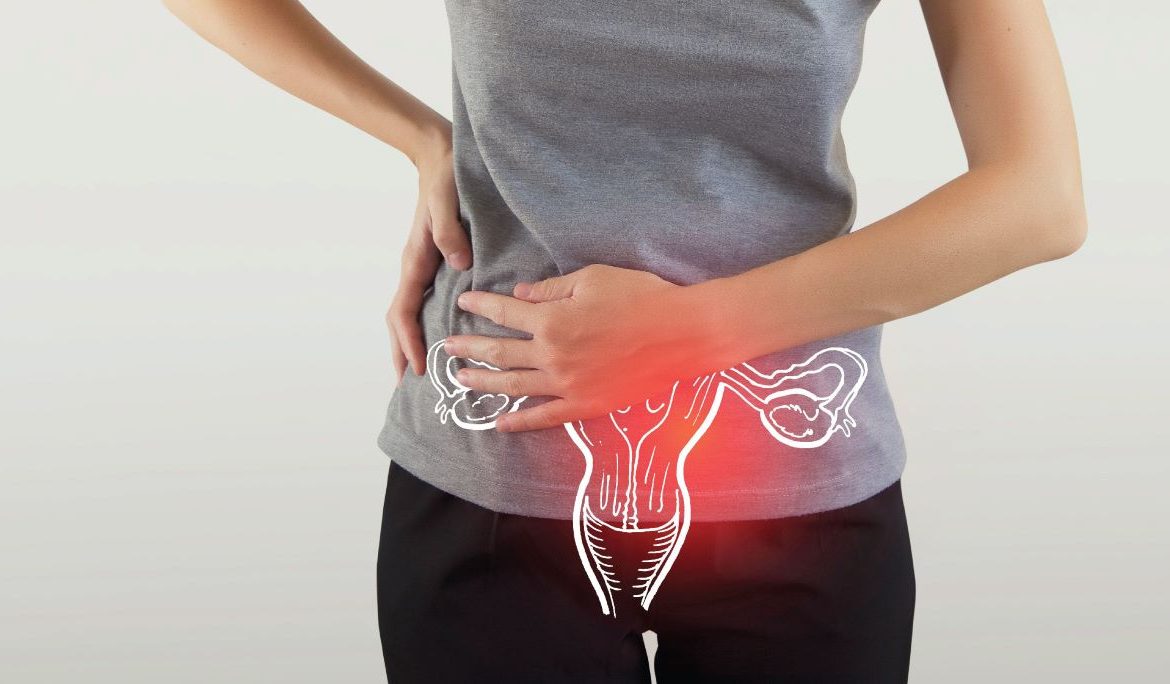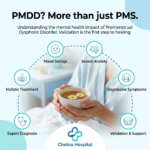Women’s health conditions like Polycystic Ovary Syndrome (PCOS) and Polycystic Ovarian Disease (PCOD) often create confusion due to their similar names and overlapping symptoms. However, these are two distinct medical conditions with unique causes, implications, and treatments. In this blog, we’ll explore the key differences between PCOS and PCOD, their symptoms, and effective management strategies to empower women with the right knowledge for better health.
What Are PCOS and PCOD?
Polycystic Ovarian Disease (PCOD)
PCOD is a condition in which the ovaries release immature or partially mature eggs over time. This hormonal imbalance leads to the formation of cysts in the ovaries. While PCOD can cause irregular periods, weight gain, and other symptoms, it is generally less severe than PCOS and does not always lead to infertility. Lifestyle changes and medications often help manage PCOD effectively.
Polycystic Ovary Syndrome (PCOS)
PCOS, on the other hand, is an endocrine disorder that goes beyond the reproductive system. In PCOS, hormonal imbalances disrupt ovulation, leading to the formation of small, fluid-filled cysts in the ovaries. PCOS is more complex than PCOD and often comes with metabolic issues like insulin resistance, obesity, and an increased risk of diabetes and cardiovascular diseases.
Key Differences Between PCOS and PCOD
| Aspect | PCOD | PCOS |
|---|---|---|
| Nature | A disorder related to the ovaries | An endocrine and metabolic disorder |
| Severity | Less severe | More severe with long-term health risks |
| Cause | Poor lifestyle, stress, hormonal imbalance | Genetic predisposition, insulin resistance |
| Ovulation | Irregular but occurs | Ovulation is rare or absent |
| Symptoms | Mild symptoms like weight gain, acne | Severe symptoms like infertility, metabolic issues |
| Fertility Impact | Rarely affects fertility | Often leads to infertility |
| Management | Easier to manage with lifestyle changes | Requires medical intervention and management |
Common Symptoms
Although PCOS and PCOD share some symptoms, their intensity and impact vary:
- Irregular periods: Both conditions can disrupt the menstrual cycle, but PCOS often leads to complete absence of periods (amenorrhea).
- Weight gain: Hormonal imbalances may cause weight gain, especially around the abdomen.
- Acne and hair issues: Both conditions can lead to acne, hair thinning, or excessive facial/body hair (hirsutism) due to increased androgen levels.
- Mood swings: Hormonal changes may lead to anxiety, depression, or mood instability.
Causes and Risk Factors
PCOD Causes
- Lifestyle factors: Poor diet, sedentary habits, and stress are primary triggers.
- Hormonal imbalance: Excess androgen production disrupts egg development.
PCOS Causes
- Insulin resistance: This is a hallmark of PCOS, leading to elevated insulin levels, which stimulate excessive androgen production.
- Genetic predisposition: A family history of PCOS increases risk.
- Chronic inflammation: Low-grade inflammation may also play a role.
Diagnosis
Accurate diagnosis is crucial to differentiate between PCOS and PCOD.
- Medical history and symptoms: A detailed discussion of menstrual history, weight changes, and symptoms.
- Blood tests: To measure hormone levels, including androgens and insulin.
- Ultrasound: To check for ovarian cysts and assess the size of the ovaries.
A diagnosis of PCOS typically requires at least two of the following:
- Irregular or absent ovulation.
- High androgen levels (clinical or biochemical signs).
- Polycystic ovaries seen on ultrasound.
Health Implications
PCOD Health Risks
- PCOD is less severe and rarely leads to long-term complications.
- With timely treatment and lifestyle management, women with PCOD can lead a healthy life.
PCOS Health Risks
- Infertility: PCOS is one of the leading causes of infertility due to irregular ovulation.
- Diabetes: Increased risk of Type 2 diabetes due to insulin resistance.
- Heart disease: PCOS elevates the risk of hypertension and heart conditions.
- Endometrial cancer: Prolonged absence of menstruation can increase this risk.
Management Strategies
Lifestyle Changes
For both PCOS and PCOD, lifestyle modifications are key to managing symptoms and improving overall health:
- Healthy Diet:
- Include whole grains, lean proteins, and healthy fats.
- Avoid processed foods, sugary drinks, and refined carbs.
- Focus on foods with a low glycemic index to regulate blood sugar.
- Regular Exercise:
- Aim for 30-60 minutes of moderate exercise daily, such as walking, yoga, or swimming.
- Strength training can help improve insulin sensitivity.
- Weight Management:
- Losing even 5-10% of body weight can significantly improve symptoms.
- Stress Reduction:
- Practice mindfulness, meditation, or relaxation techniques to reduce stress levels.
Medical Treatment
- Medications:
- Birth control pills to regulate periods and lower androgen levels.
- Metformin to manage insulin resistance (for PCOS).
- Fertility drugs for ovulation induction.
- Surgery:
- Rarely, laparoscopic ovarian drilling (LOD) may be recommended for severe PCOS cases.
Holistic Approaches
- Acupuncture, herbal remedies, and other complementary therapies may help some women, though more research is needed.
When to See a Doctor
Consult a gynecologist if you experience:
- Irregular or absent periods for several months.
- Excessive facial or body hair growth.
- Difficulty conceiving after trying for over a year.
- Unexplained weight gain or severe acne.
Early intervention can help manage symptoms effectively and prevent complications.
Conclusion
While PCOS and PCOD share some similarities, their differences lie in severity, causes, and long-term impact. PCOD is a milder condition that can often be managed with lifestyle adjustments, while PCOS requires more comprehensive medical care due to its systemic nature and associated risks.
Awareness and early diagnosis are vital for managing both conditions effectively. By adopting a healthy lifestyle, seeking timely medical advice, and staying informed, women can lead healthier lives despite these challenges.
Remember, your health is in your hands, and small steps today can lead to a healthier tomorrow. If you suspect PCOS or PCOD, don’t hesitate to consult your healthcare provider.
For Consultation Contact us on 9168690447
Website –
www.chetnahospital.co.in
Address – Chetna Hospital, Sambhajinagar, MIDC, G Block, Near Rotary Club, Chinchwad 411019
.
.
.
#hospital#pune#pcmc#chinchwad#health#healthcare#gynaecologist#femalegynaecologist#gynaecologistappointment#gynac#gynaecologistdoctor#gynaecologisthospital#goodgynaecologist#gynaecologistspecialist.













